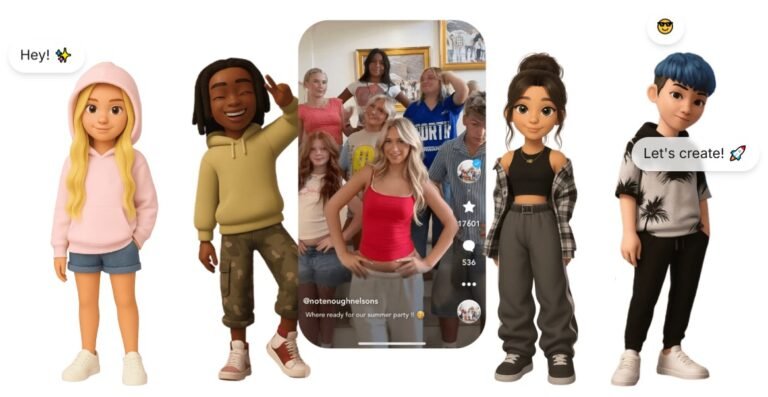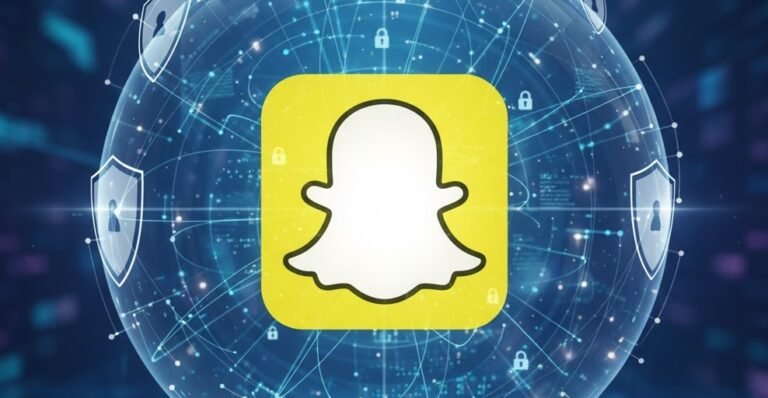Text abbreviations and slang have become essential for online communication, especially among younger generations. The abbreviation “RN” is particularly common, and understanding it helps parents connect meaningfully with their children while ensuring their digital experiences remain positive and safe.

Know What They’re Doing “Right Now” (RN).
“RN” means immediacy. FamiSpy provides real-time location data and current app usage so you have immediate visibility into your child’s activities and location, keeping them safe in the moment.
VIEW DEMOWhat Does RN Mean?
“RN” stands for “right now.” This abbreviation indicates immediacy or describes what someone is currently doing or feeling in the present moment.

Origins
This abbreviation emerged in the early 2000s with SMS messaging, when character limits and slow typing made brevity necessary. As messaging evolved into platforms like Twitter with its original 140-character limit, shortcuts like this one became embedded in digital culture.
Search trend data shows consistent interest in understanding this term over the past five years, with approximately 390 monthly searches for related terms. The abbreviation remains widely used across generations, though it’s particularly common among teens and young adults who value efficient communication.
How to Use It in Text and Social Media
Placement in Sentences
The term typically appears:
- At the end of a sentence: “I’m so bored RN”
- Mid-sentence for emphasis: “I RN can’t even deal with this homework”
- As a standalone response: “Where are you?” “At school RN”

Context Considerations
This abbreviation works best in:
- Casual conversations between friends
- Social media posts and comments
- Quick updates about current status or activities
It’s generally avoided in:
- Professional emails or communications
- Formal writing or academic work
- Conversations with people unfamiliar with internet slang
Quick Do’s and Don’ts
Do:
- Use it to describe your current situation or feelings
- Pair it with other text slang when appropriate
- Keep it casual and conversational
Don’t:
- Use it in professional or formal settings
- Overuse it in every message
- Expect everyone (especially older adults) to understand it without context
Examples in Conversations
Text Message Examples
Friend 1: Want to grab lunch?
Friend 2: Can't rn, stuck in class until 2Parent: Did you finish your homework?
Teen: Working on it rnFriend 1: How are you feeling after yesterday?
Friend 2: I'm actually doing much better rn, thanks for askingSocial Media Examples
Twitter/X Post: “The weather RN is absolutely perfect for a beach day 🌊☀️”

Instagram Caption: “Living my best life RN #nofilter #summerfun”
TikTok Comment: “This song is literally my mood rn”
Tone Variations
Context and accompanying words can significantly change the tone:
Excited: “OMG I’m meeting my favorite band RN!!!”
Frustrated: “My wifi keeps cutting out rn and I’m trying to submit this assignment 😤”
Casual Update: “Just chilling at home rn, nothing special”
Emotional: “Need some space rn, feeling overwhelmed”
Common Misunderstandings
Confusion with “Registered Nurse”
The most common confusion involves mistaking this slang with the abbreviation for “Registered Nurse” in medical contexts.
For example, “My mom is an RN” refers to a nursing profession, while “My mom is mad RN” means “My mom is angry right now.”
Context Clues to Distinguish Meaning
To determine which meaning is being used, consider:
- The surrounding words and conversation topic
- Whether the context is medical/professional or casual/social
- The age and communication style of the person using it
Similar Slang Terms and Expressions
This abbreviation belongs to a broader category of time-related text shortcuts:
Direct Alternatives
- ATM (At The Moment) – Often used interchangeably
- Currently – The formal equivalent
- Now – The single-word alternative
Other Time-Related Slang
- BRB (Be Right Back) – Indicates a temporary absence
- GTG (Got To Go) – Signals the end of a conversation
- HMU (Hit Me Up) – Request for future contact
- TBT (Throwback Thursday) – References the past
- AFK (Away From Keyboard) – Indicates unavailability
- Rizz – Refers to someone’s ability to attract or charm others, especially in a romantic or flirtatious context.
- TBC (To Be Continued) – Used to indicate that something will resume or continue at a later time.
- TTYL (Talk To You Later) – A casual way of saying goodbye, implying the conversation will pick up later.
Complementary Slang Often Used Together
The term frequently appears alongside other popular abbreviations:
- TBH (To Be Honest): “TBH I’m so stressed RN”
- NGL (Not Gonna Lie): “NGL this movie is boring RN”
- IMO (In My Opinion): “This is the best song out IMO RN”
How FamiSpy Helps You Stay Informed
FamiSpy is a smart parental control tool that helps you monitor your child’s digital communication, understand slang like “RN,” and stay aware of their online world—without being intrusive. It’s designed for parents who want clarity and peace of mind while maintaining trust and openness with their children.
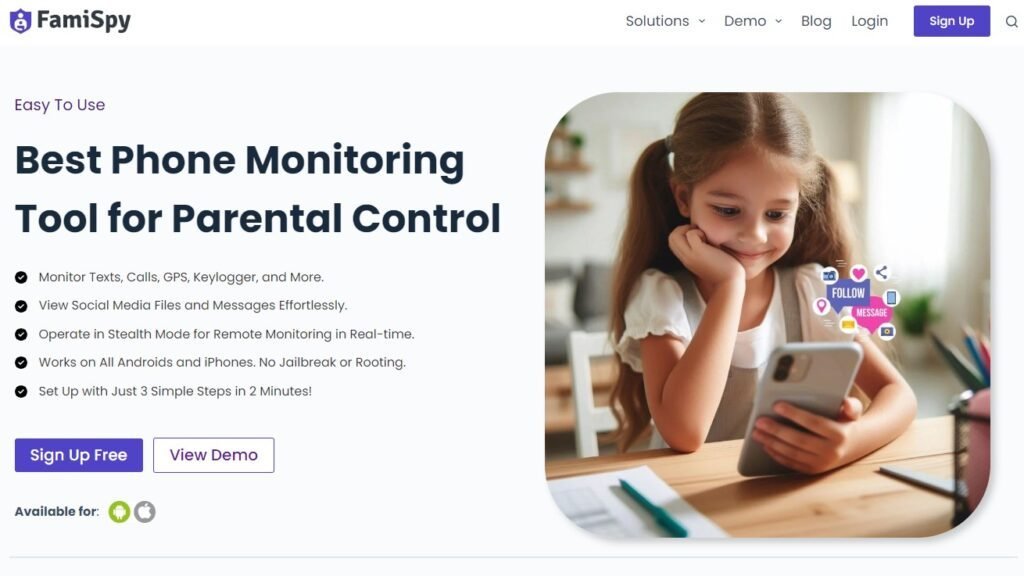
Why Parents Choose FamiSpy
- Real-Time Monitoring: View your child’s text messages, chat history, and social media posts as they happen.
- Contextual Insights: See not just the messages, but the full context of conversations.
- Privacy-Respectful: Lets you monitor transparently, promoting honest communication and trust.
- Multi-Platform Support: Compatible with Android, iOS, and major social platforms.
How to Monitor Teen Slang Like RN using FamiSpy
Step 1. Sign Up and Choose a Subscription Plan
Visit the FamiSpy website and create an account by entering your personal details. Then, select a subscription plan according to your needs.
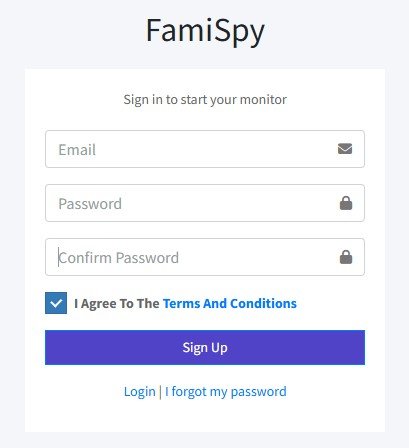
Step 2. Install FamiSpy on Your Child’s Device
Download and install the FamiSpy app on the target device (Android or iOS). Follow the easy setup instructions to ensure all necessary permissions are granted and the app is fully functional.
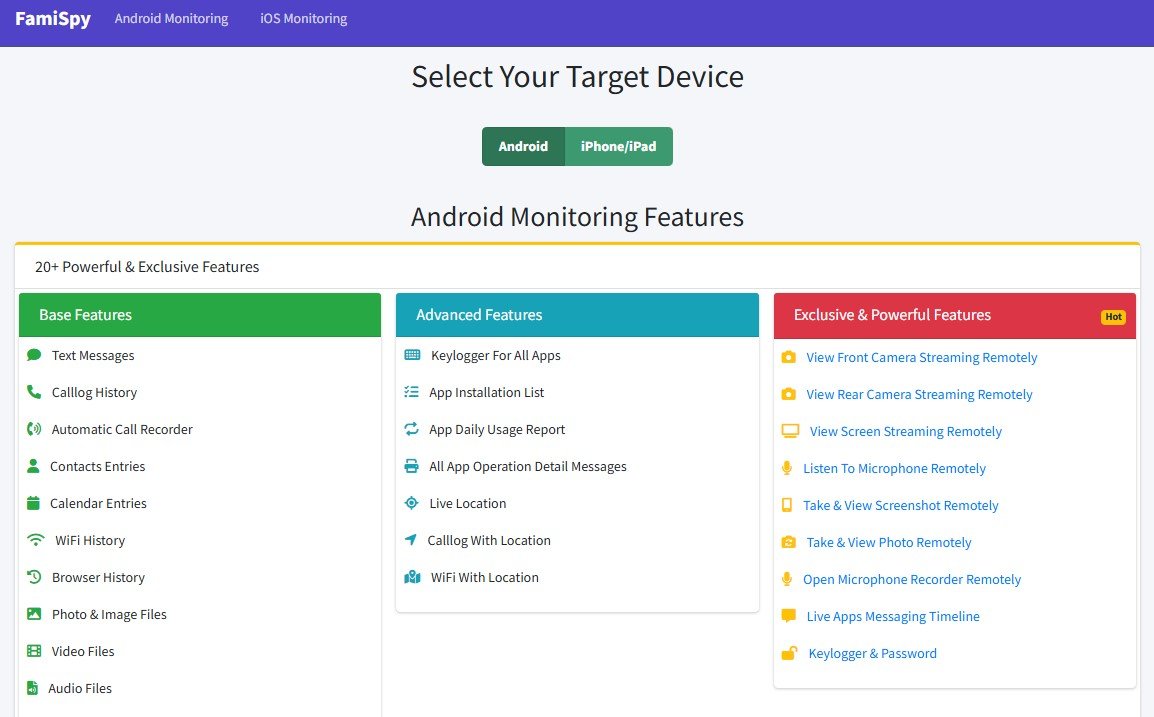
Step 3. Start Monitoring and Stay Informed
Once installed, you can monitor your child’s text messages, social media activity, and real-time updates through the FamiSpy dashboard. This allows you to better understand slang like “RN” in context, making it easier to stay informed and connected with your child’s online world.
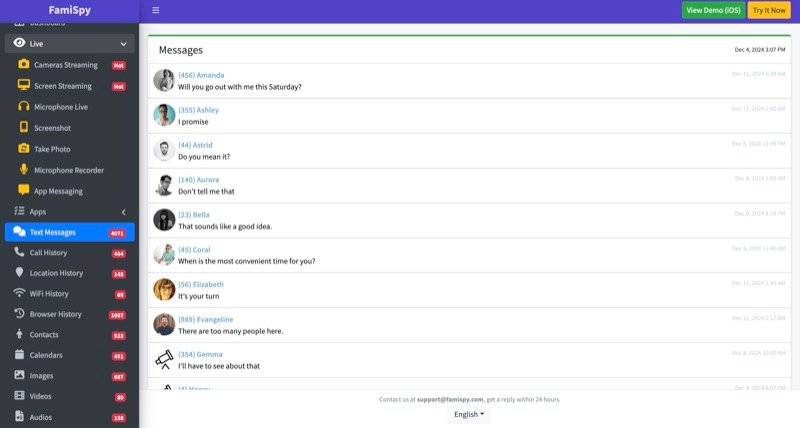
Parental Guide: When to Be Concerned
Generally, using “RN” is perfectly normal and harmless. However, context matters:
Normal Usage Patterns
Most usage is entirely innocent and simply indicates:
- Current activities: “Studying for my test RN”
- Present emotions: “Feeling happy RN”
- Status updates: “At Sarah’s house RN”
Potential Red Flags
While rare, certain patterns might warrant attention:
- Secretive context: “Can’t tell you what I’m doing RN”
- Concerning activities: “Skipping class RN”
- Emotional distress: “Really can’t handle things RN”
- Unusual timing: Late-night messages might indicate sleep issues
Practical Tips for Parents
If you’re monitoring your child’s digital communication:
- Focus on context, not just the slang term itself
- Have open conversations about online communication without judgment
- Establish trust by showing interest in their digital world
- Set clear boundaries about digital device usage
- Use monitoring tools like FamiSpy as part of a comprehensive approach to digital parenting
FAQs About RN Slang
Conclusion
Understanding modern slang helps connect meaningfully with younger generations. For parents, knowledge of these terms opens doors to better conversations about online activities. FamiSpy helps families navigate digital communication while maintaining healthy relationships—because staying connected with your children matters right now more than ever.
Don’t Miss:





